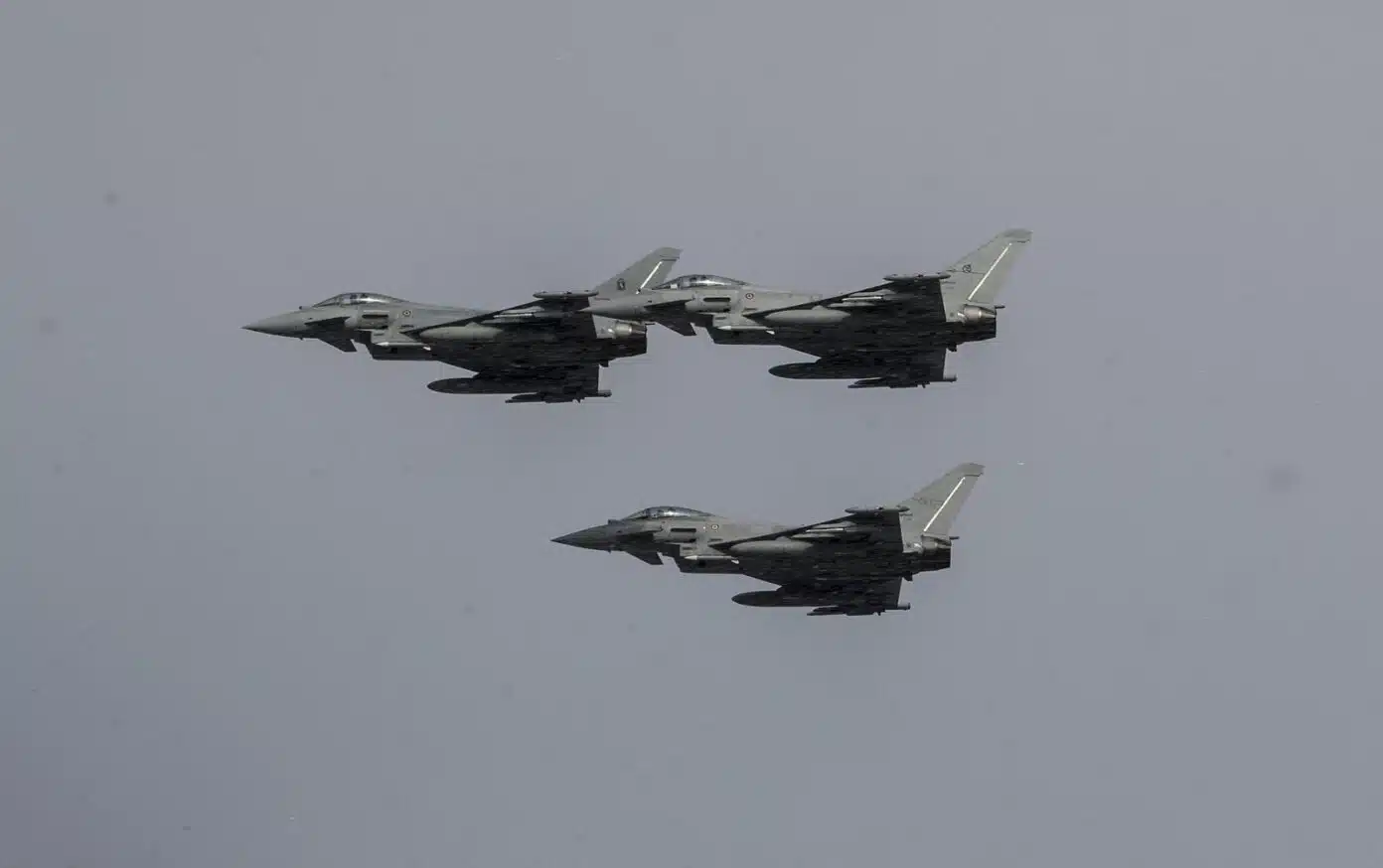Europe’s new push for strategic autonomy is taking off from an unexpected runway: Ankara. A $10.7 billion deal signed between Britain and Türkiye for 20 Eurofighter Typhoon jets marks one of the continent’s most consequential defense moves in years, intertwining Europe’s industrial interests with its growing desire for independence from the United States.
The late-October agreement, inked during U.K. Prime Minister Keir Starmer’s visit to the Turkish capital, represents both a revival of European defense industry capacity and a recalibration of geopolitical alignments within NATO. For Türkiye, it bridges a crucial gap until its domestically produced fifth-generation Kaan fighter becomes operational. For Europe, it keeps factories humming and signals readiness to project power through its own supply chains.
Strategic and economic lifeline
The Eurofighter program sustains over 20,000 jobs across Britain, Germany, Italy and Spain. Britain’s BAE Systems is expected to earn around $6.2 billion from the Turkish order. The package includes both new and lightly used jets sourced from Qatar and Oman, accelerating deliveries for Ankara while boosting Europe’s defense manufacturing base strained by the war in Ukraine and rising production costs.
“The deal serves three goals at once — deterrence, industrial stability and strategic independence,” said a senior European defense official familiar with the negotiations.
Europe’s motivation, analysts say, extends beyond economics. After nearly four years of war in Ukraine, the conflict in Gaza and Donald Trump’s return to the White House, confidence in Washington’s reliability has waned. The Typhoon deal, London insists, is “a model for NATO allies” seeking to strengthen their defenses without relying entirely on U.S. approval or hardware.
Filling the American vacuum
The contract also exposes the vacuum left by U.S. hesitation toward Türkiye. Ankara was removed from the F-35 program in 2019 and only secured approval for its long-delayed F-16 Viper package in early 2024. Europe’s move, made while Washington was still debating, turned an American veto into a European export opportunity — and a geopolitical statement.
For Türkiye, the purchase is pragmatic. With Greece modernizing its air fleet with Rafale and F-35 fighters, Ankara sought a capable stopgap until its Kaan aircraft enter service in 2028. The Typhoons restore a measure of balance in the Aegean and reaffirm Türkiye’s role within Europe’s collective defense structure.
The breakthrough came when Germany joined the other consortium members in authorizing the export. Chancellor Friedrich Merz later described Türkiye as “a close and essential partner for Europe’s stability and energy security.”
Regional backlash and new realities
The deal has stirred unease among NATO allies. Greece warned it could upset the aerial balance in the Aegean, while Israel privately called the move a “strategic headache.” Yet the objections have not slowed implementation.
In Athens, officials told Greek media that the real dispute centers on whether Türkiye will face usage restrictions in potential conflicts with other NATO members. Berlin’s foreign minister, Johann Wadephul, said using the jets “against another NATO or EU state is unthinkable.” Ankara rejected any such conditions, saying the aircraft would be used “for all mission types,” including patrols over the Aegean Sea.
Türkiye’s Defense Ministry added that the Typhoons would integrate Turkish software and Identification Friend-or-Foe (IFF) systems operating under national codes, underscoring operational independence.
Interdependence by design
Defense analysts note that the deal’s true impact lies in its long-term integration of Türkiye into Europe’s supply and maintenance networks. That interdependence, they say, gives Europe more leverage in Ankara while helping Türkiye diversify away from U.S. systems and accelerate development of its indigenous Kaan jet.
By the end of the decade, a mixed fleet of Eurofighters, upgraded F-16s and domestically built aircraft is expected to give Türkiye one of NATO’s most flexible air forces.
Europe, in turn, gains an assertive partner in a volatile region spanning the Black Sea, Middle East and Eastern Mediterranean. The Typhoon agreement, more than a sale, signals a rebalancing of power within NATO — and a rare moment of unity between Europe’s major defense powers.
If Europe’s quest for strategic autonomy ever takes off, analysts say, its first runway may well be in Ankara.



